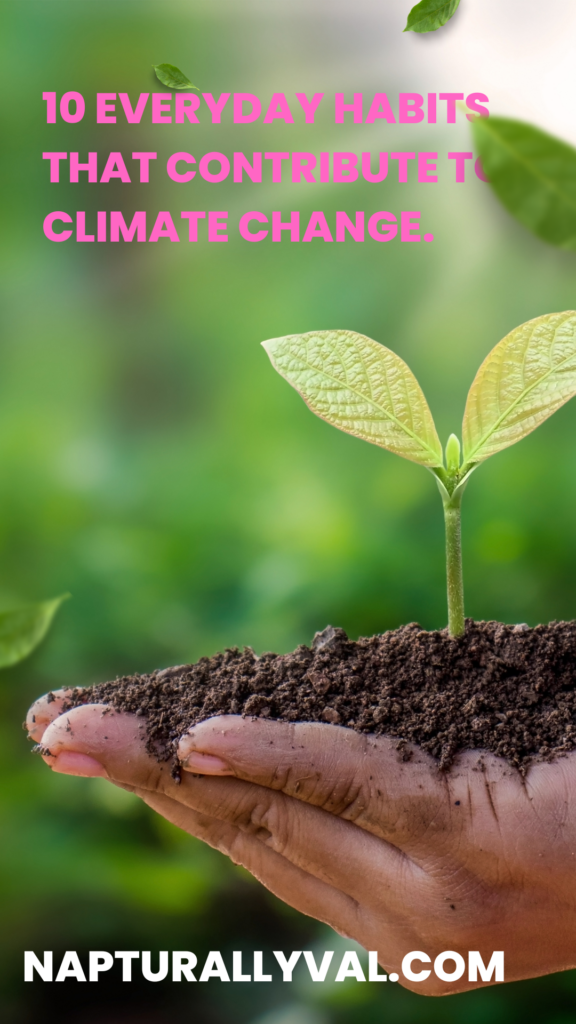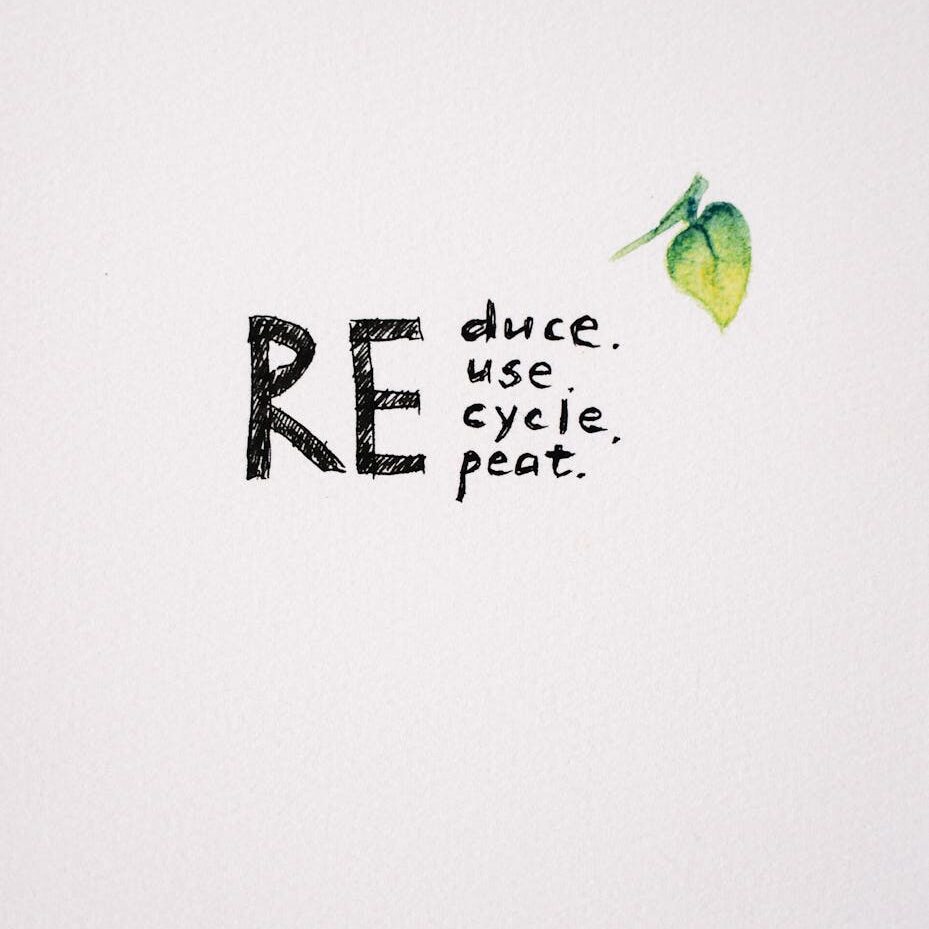Climate change is one of the most pressing issues of our time, fueled by human activities that release greenhouse gases (GHGs) into the atmosphere. While global initiatives and policies play a vital role, individual habits significantly contribute to the problem. This blog explores ten common everyday habits that impact the environment and offers practical solutions for change.

Table of Contents
Daily activities Causing Climate Change
1. Driving Short Distances
The Issue: Cars are major sources of carbon dioxide (CO2) emissions. Short trips contribute disproportionately to emissions as engines are less efficient during cold starts.
Example: Driving a mile to pick up groceries instead of walking or biking.
The Impact: According to the Environmental Protection Agency (EPA), transportation accounts for 27% of total GHG emissions in the U.S. in 2021: Opt for walking, biking, or public transportation for short trips. If driving is unavoidable, consider carpooling or switching to electric or hybrid vehicles.
2. Excessive Energy Use at Home
The Issue: Leaving lights on, overusing heating/cooling systems, and not unplugging devices when not in use lead to unnecessary energy consumption.
Example: Keeping your thermostat set to 72°F all year round, regardless of the weather.
The Impact: Fossil fuels used to generate electricity emit CO2, with residential energy use accounting for approximately 10% of global GHG emissions .
Use energy-efficient appliances, switch to LED bulbs, and adjust thermostats seasonally. Invest in smart plugs to reduce standby power consumption.
3. Food Waste
The Issue: Throwing away food contributes to methane emissions in landfills. Methane is a potent GHG, trapping 25 times more heat than CO2 over a 100-year period.
Example: Discarding leftovers or buying more produce than you can consume.
The Impact: According to the Food and Agriculture Organization (FAO), one-third of all food produced globally is wasted, contributing to 8-10% of global GHG emissions .
Solution: store food properly, and compost organic waste. Support food recovery programs that redistribute surplus food.
4. Overreliance on Single-Use Plastics
The Issue: Plastic production and disposal emit GHGs. When plastics degrade in landfills, they release methane and ethylene.
Example: Using plastic bags, bottles, and straws without considering reusable alternatives.
The Impact: By 2050, plastics could account for 15% of global CO2 emissions if current trends persist .
Solution: Switch to ecofriendly and reusable bags, bottles, and containers. Support policies banning single-use plastics.

5. Consuming Fast Fashion
The Issue: Fast fashion involves mass production of low-quality clothing, leading to high energy use, water consumption, and waste.
Example: Buying new outfits for every occasion and discarding them after a few uses.
The Impact: The fashion industry is responsible for 10% of annual global carbon emissions .
Solution: Buy quality clothing and repair or upcycle old clothing.
6. Meat-Heavy Diets
The Issue: Meat production, especially beef and lamb, generates methane during digestion and CO2 from land use and feed production.
Example: Eating meat for most meals without considering plant-based alternatives.
The Impact: Livestock accounts for nearly 15% of global GHG emissions .
Solution: Adopt a plant-based diet. Replace red meat with sustainable protein sources like legumes, tofu, or poultry.
7. Excessive Water Usage
The Issue: Water extraction and treatment require energy, and water wastage exacerbates climate change impacts.
Example: Letting the tap run while brushing your teeth or overwatering lawns.
The Impact: Energy used in water processing contributes to emissions, while drought-prone regions suffer resource depletion .
Solution: Fix leaks, install low-flow fixtures, e water-conscious habits like turning off taps when not in use.
8. Improper Recycling
The Issue: Contaminated recycling streams and improper sorting result in recyclable materials ending up in landfills.
Example: Tossing greasy pizza boxes or plastic bags into recycling bins.
The Impact: Recycling reduces energy use and emissions, but improper practices undermine these benefits .
Solution: Learn your local recycling rules. Rinse contained “wishcycling” (recycling items that aren’t accepted).

9. Frequent Online Shopping
The Issue: Packaging waste and emissions from transportation contribute to climate change.
Example: Ordering multiple items individually instead of consolidating purchases.
The Impact: The e-commerce boom has increased GHG emissions, especially from last-mile delivery .
Solution: Choose slower shipping methods, bundle orders, and support with sustainable practices.
Related post: Shocking environmental impact of online shopping
10. Neglecting Local Products
The Issue: Importing goods involves emissions from transportation, especially when air freight is used.
Example: Buying out-of-season produce from other countries instead of local alternatives.
The Impact: Air transportation emits up to 50 times more CO2 than shipping by sea .
Solution: Support farmers’ markets and buy seasonal produce. Opt for products to home to reduce your carbon footprint.
Why Individual Actions Matter
While systemic change is crucial, small actions multiplied across millions can drive meaningful impact. Every time you choose sustainable practices, you reduce demand for carbon-intensive alternatives, sending a message to policymakers and corporations.
Call to Action
Addressing climate change starts with acknowledging the impact of our habits. Reflect on your lifestyle, implement the solutions discussed here, and inspire others to join you in the fight against climate change. Together, we can make a difference—one small step at a time.
References
- Environmental Protection Agency. “Sources of Greenhouse Gas Emissions.” EPA
- Food and Agriculture Organization. “Food Waste and Climate Change.” FAO
- United Nations Environment Programme. “Plastic Pollution: Why We Must Act Now.” UNEP
- Global Fashion Agenda. “The Impact of the Fashion Industry on the Environment.” GFA
- Intergovernmental Panel on Climate Change. “Agriculture and Land Use Emissions.” IPCC


